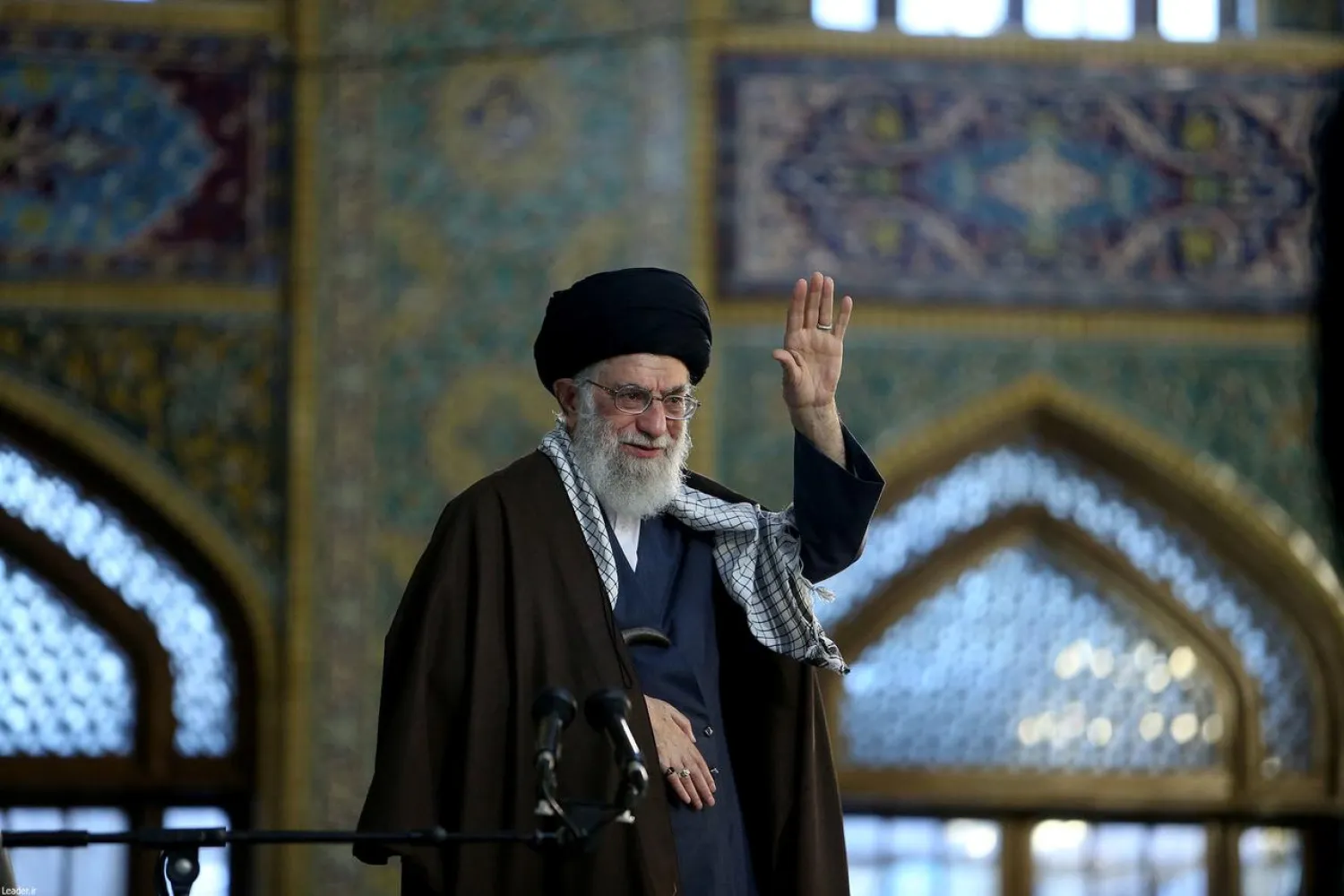Iran’s Supreme Leader Ali Khamenei accused Western countries of stabbing Iran in the back after the US withdrawal from the nuclear deal.
“We should completely forego (any hope) of help or cooperation from Westerners in strengthening our economy, we shouldn’t wait for them,” he said, adding: “Once again the Europeans have stabbed us in the back, they have betrayed us.”
Khamenei went to Mashhad, northeast of the country, to deliver his first traditional speech on the Iranian New Year.
In his speech, Khamenei played down the importance of the European financial mechanism to face sanctions, stressing that Tehran was determined to strengthen its defense capabilities despite growing pressure from Washington and its allies to curb Tehran’s ballistic missile program.
“This financial channel they recently set up resembles a joke, a bitter joke,” he said.
The spiritual leader was referring to a trade mechanism to bypass US sanctions on Iran, known as Instrument in Support of Trade Exchanges (INSTEX), launched in late January in an attempt to save the 2015 nuclear deal.
He continued his attack against Europeans, saying: “They wear suits, they put on ties and eau de cologne and carry Samsonite briefcases but they are savages.”
But Khamenei denied at the same time that he was calling for cutting ties with Europe.
“What I am saying does not mean (Iran) should cut Western ties, not at all... there is no problem in having relations with them, but trusting them is a mistake, don't trust them,” he explained.
President Hassan Rouhani, for his part, defended his presidential tenure in a separate televised message, saying the economic problem was caused primarily by US sanctions.
“The new year is a year of increasing production and creating jobs for our dear youth,” said Rouhani. “New Year is a year to control inflation, balance the foreign exchange market and strengthen friendship with neighboring countries.”
He called on the political factions in the country to end their rivalry and unite in the face of external enemies, saying: “The basis of our turmoil and problems … have come from those outside of our borders.”
US President Donald Trump sent his wishes to the Iranians on Nowruz, tweeting: “I send my warmest wishes to those in the United States and around the world observing the ancient holiday of Nowruz… Sadly, the Iranian people are once again unable to share fully in the joy of this occasion. This year, as they have each year for the past four decades, they mark the arrival of spring under the heavy burden of the oppression of their country’s ruthless and corrupt regime.”
He continued: “In solidarity with the people of Iran, who yearn for a future of liberty, opportunity, and prosperity, the United States of America continues to condemn the dictatorial Iranian regime. We pledge never to turn a deaf ear to the calls of the Iranian people for freedom, and we will never forget their ongoing struggle for human rights.”









